Autistic Cards

Enhancing Awareness and Communication for Autistic Individuals
Autistic cards serve as vital tools in fostering understanding, safety, and respect for individuals on the autism spectrum. By providing concise, personalized information, these cards help bridge communication gaps in various environments, such as public settings, emergencies, and social interactions. This article explores the purpose, types, usage, and resources related to autistic cards, emphasizing their role in empowering autistic individuals and promoting societal acceptance.
Understanding the Purpose of Autistic Cards
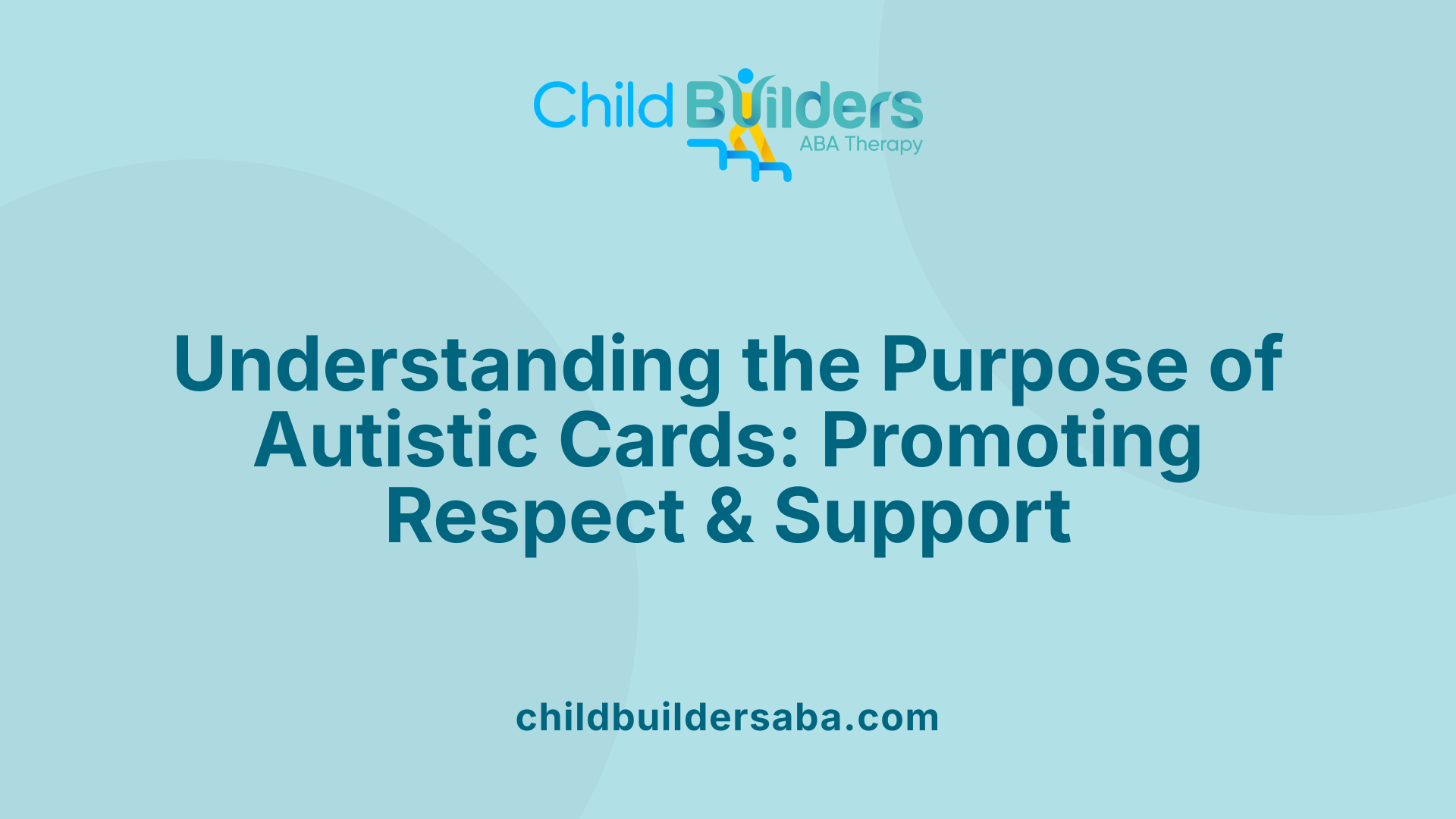
What is the purpose of autistic or autism awareness cards?
Autism awareness cards are designed to improve understanding and support for autistic individuals. These cards quickly communicate that a person is autistic, helping others recognize their needs and preferences. They can be especially useful in unfamiliar situations, such as during travel, emergencies, or social interactions where cues might be missed.
The primary aim is to promote respectful and supportive interactions. By providing clear information, autistic cards help caregivers, service providers, or the general public understand how to assist effectively. They may include details about any additional support the individual might need, such as extra time or specific communication methods.
These cards often contain resource links or contact information to connect with further support services. They are part of wider efforts to raise awareness, reduce stigma, and foster an inclusive environment where autistic people are understood and respected.
Overall, the cards empower autistic individuals by making their needs known in a discreet and straightforward manner. This helps create safer, more positive experiences across diverse settings — from schools and workplaces to public transport and medical environments.
What Are Autistic Cards and How Are They Used?
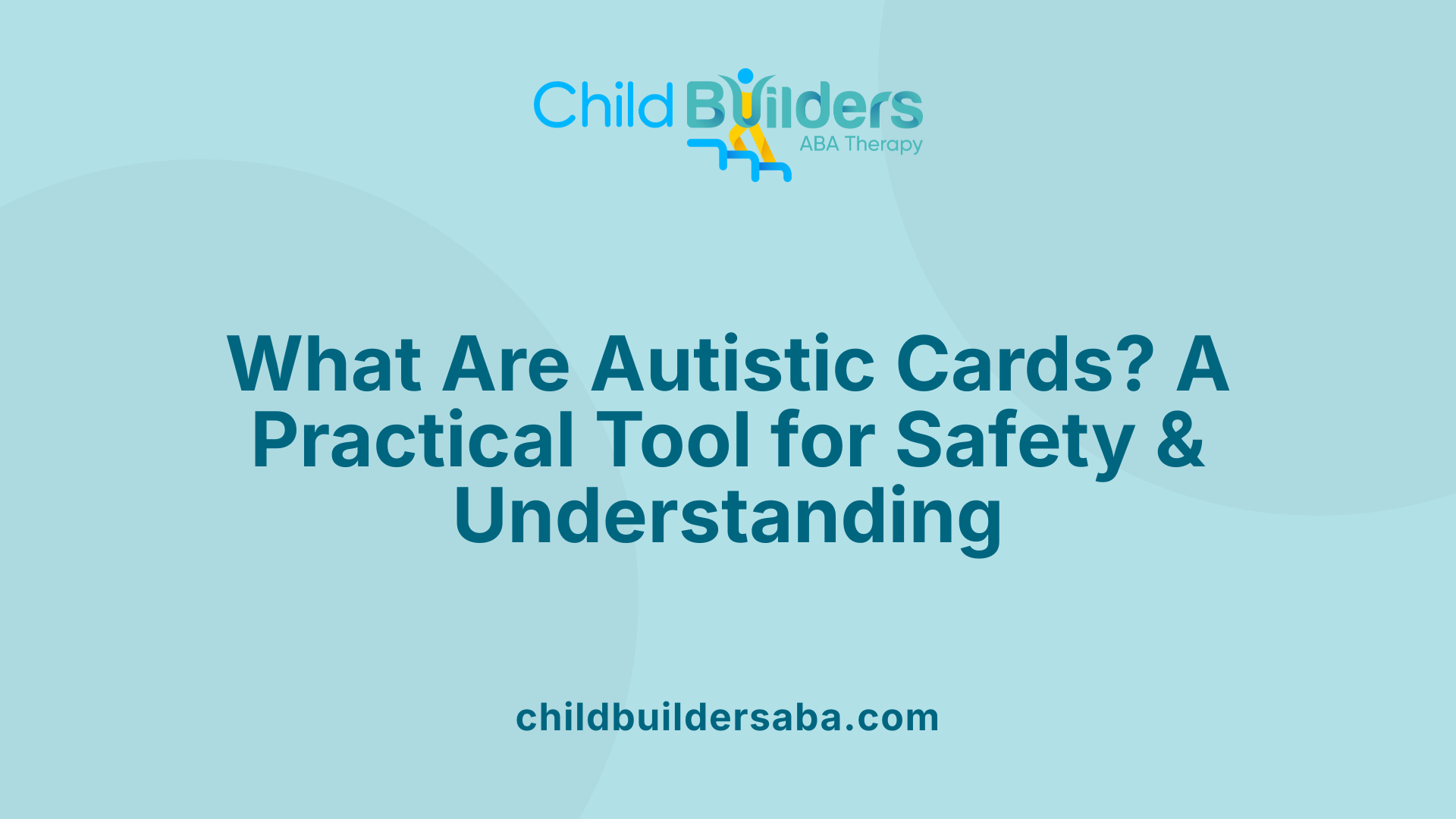
What are autistic cards and how are they used?
Autistic cards are compact, portable resources that serve as a communication aid for autistic individuals. They are designed to clearly convey essential information about a person's autism diagnosis, possible support needs, and behaviors that others might encounter. These cards typically include details such as sensory sensitivities, emergency contacts, and explanations of behaviors that might seem unusual to people unfamiliar with autism.
The main purpose of these cards is to foster better understanding and support across various settings—whether in emergencies, schools, or social environments. They help ensure that emergency responders quickly recognize an autistic person's needs and can respond appropriately. In educational contexts, these cards can assist teachers or support staff in providing tailored assistance. They are also useful in everyday social situations where an autistic individual might encounter unfamiliar people.
Many organizations, like the National Autism Association, offer free downloadable templates and physical versions of these cards. Some are customized for different age groups or specific circumstances. For example, there are distinct cards for children, individuals, and those supporting someone with autism.
In addition to identification, there are specialized tools like the "Autism & PDD Photo Cards" aimed at teaching communication skills through picture-based questions and answers. These help children learn how to ask and respond to questions like "Who," "What," "Where," and "Why," which are critical for social development.
Overall, autistic cards are practical resources designed not just for safety but also to enhance understanding, patience, and respectful interactions. They are particularly valuable in situations where verbal communication is limited or challenging, ensuring that autistic individuals are treated fairly and compassionately.
How to Obtain, Customize, and Use Autistic Cards
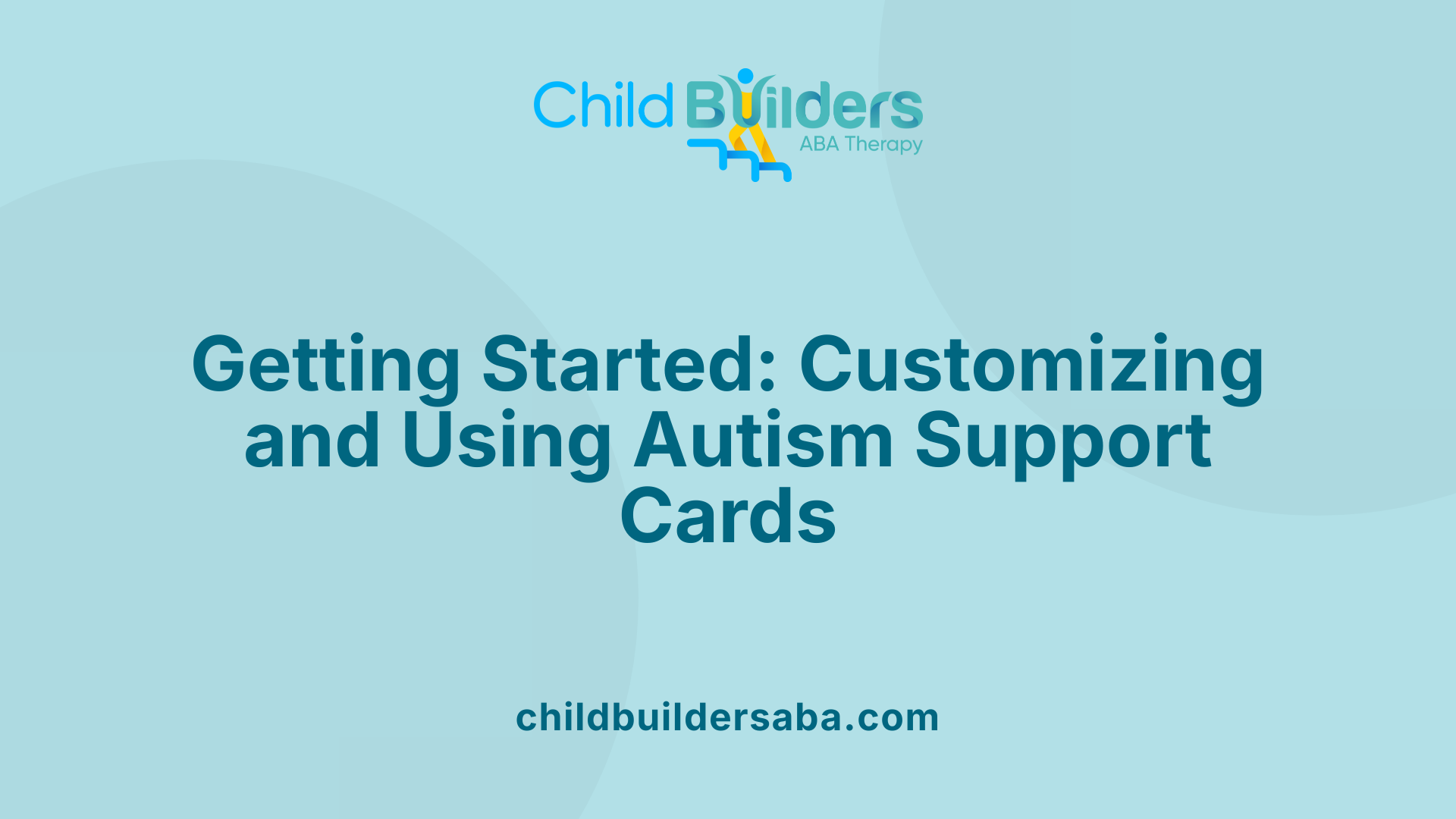
Options for downloading, customizing, and printing cards.
Many organizations and websites offer free or paid options for obtaining autism-related ID cards. You can visit dedicated autism resource sites that provide downloadable templates, such as the 'I am autistic card' or similar tools. These sites often enable you to customize the card by adding personal details like your name, photo, emergency contacts, and specific needs.
After customization, the cards can be printed at home or through a professional printing service. Some providers offer ready-made cards for purchase in packs. For example, the 'My Child Has Autism Cards' come in packs of 50 business card-sized pieces, designed for social awareness.
Personalization aspects, including information and images.
Personalization enhances the effectiveness of these cards. You can include your or your child's name, a recent photo, and relevant medical or support information. Some cards also feature symbols or icons that indicate sensory sensitivities or communication preferences.
Images such as real-life photos are often used, especially in educational materials like the 'Autism & PDD Photo Cards,' which contain 240 cards with images aimed at teaching question-asking skills for children. These visual aids facilitate understanding in educational settings and social interactions.
Organizations recommend ensuring privacy when sharing personal data. Many online services specify that your data will be used securely and deleted after a certain period. Carrying such a card, often on a lanyard, helps others recognize your needs quickly, promoting supportive responses in emergencies or daily activities.
Availability and Benefits of Free Printable Autism ID Cards
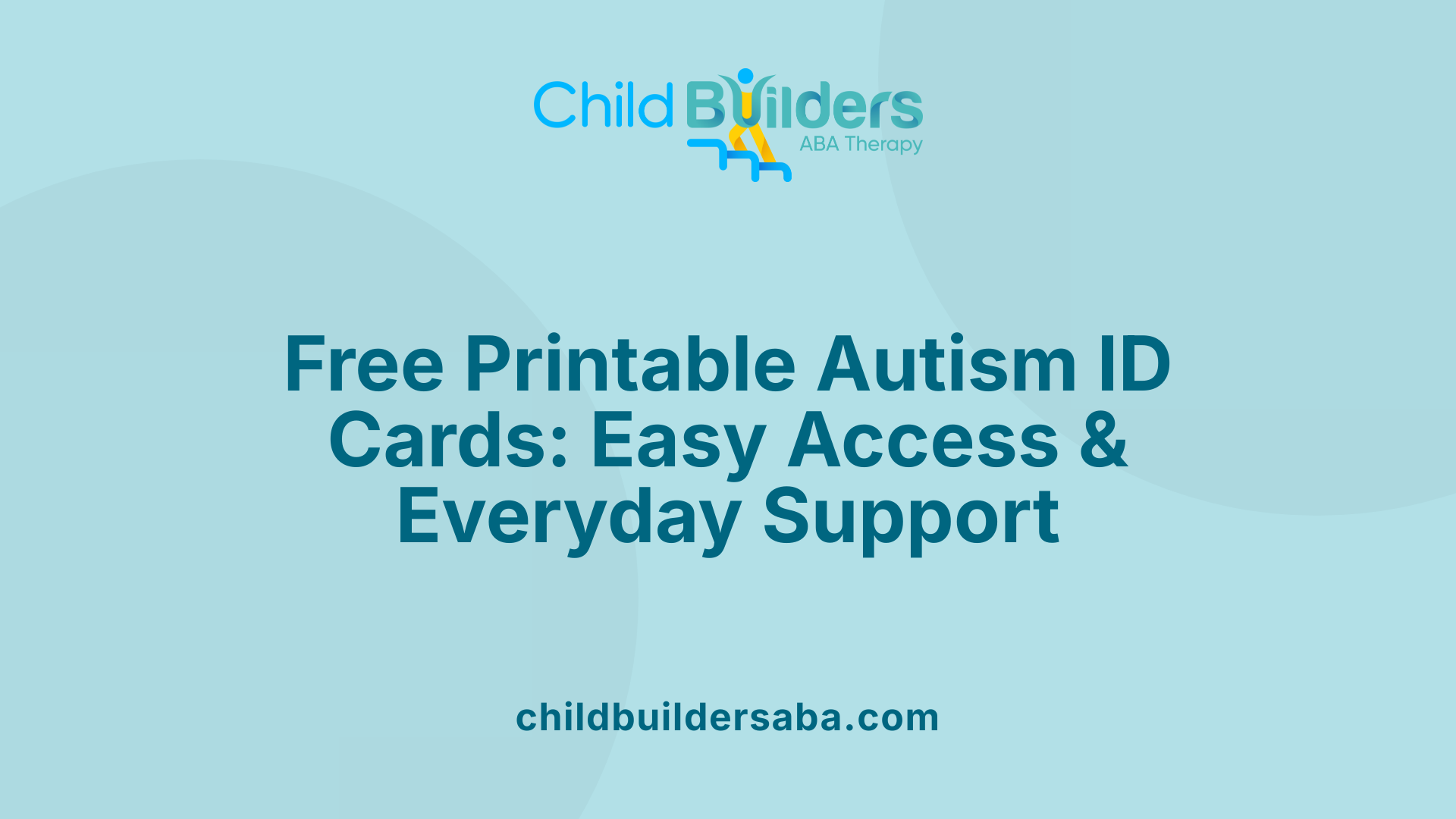
Are there free printable autism ID cards available?
Yes, free printable autism ID cards are accessible through numerous reputable autism organizations and online platforms. These cards serve as a helpful tool for autistic individuals to discreetly communicate their condition and specific needs to others, fostering an environment of understanding and support.
Many organizations offer downloadable digital templates that can be printed at home, ensuring easy access without cost. For example, the organization supported by the National Autism Association provides various versions of autism cards, including options tailored for different regions, such as a Scotland-specific card. These resources are designed to inform others that the individual may require extra time or assistance in social or public situations.
In addition to free printable cards, some organizations also sell physical cards or offer customizable templates that can be printed locally. This flexibility helps meet the needs of different users while promoting awareness.
Why are these cards beneficial?
Using an autism ID card can significantly improve daily interactions and safety for autistic individuals. These cards act as a communication bridge, especially in unfamiliar settings like restaurants, schools, or public transport.
The main advantages include:
- Promoting understanding: They help others recognize that the individual may have specific needs, reducing misunderstandings or judgment.
- Facilitating support: They inform teachers, healthcare providers, or service staff that extra patience or assistance might be necessary.
- Enhancing safety: In emergencies, the card provides quick insight into the person’s condition, potentially informing emergency responders.
- Empowering individuals: Autistic people can feel more confident when they have their condition acknowledged, encouraging independence.
In conclusion, free printable autism ID cards are an accessible resource that supports social integration and safety, making everyday encounters smoother for autistic individuals and those around them.
The Benefits of Using Autism Awareness and Support Cards
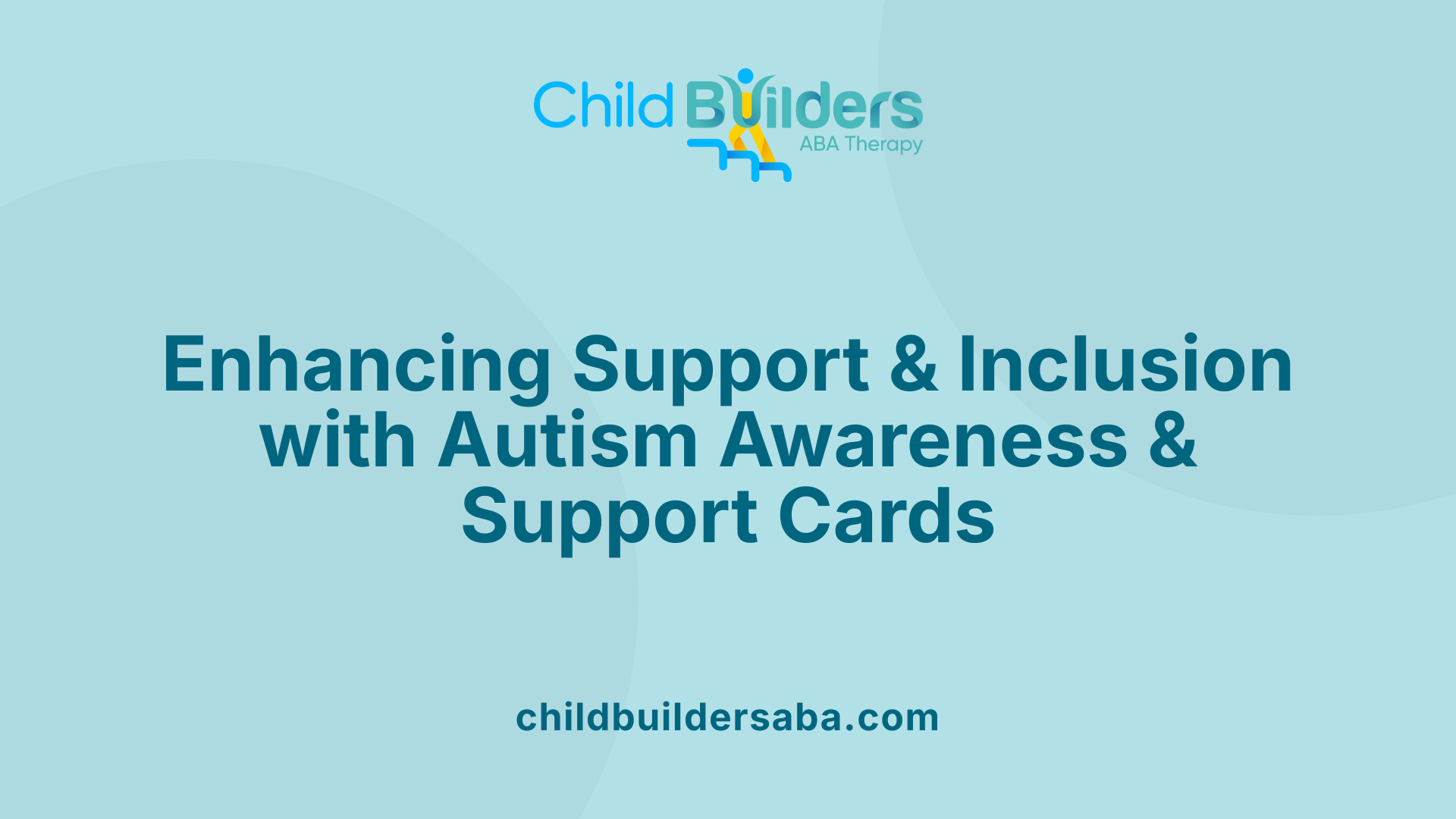
How these cards foster communication and inclusion
Autism awareness and support cards serve as simple yet powerful tools to bridge communication gaps for autistic individuals. These cards, which may include personal details, needs, and preferences, are designed to be easily understood by the public and service providers. For example, the 'I am autistic card' can inform others that a person might require additional time or support, helping to create a more understanding environment.
The organization offers various versions, including specific cards for children, supporting persons, and tailored options like the Scotland-specific card. These cards often include real-life photos and clear indicators of what the individual might need, which can significantly reduce misunderstandings. Using such cards promotes social inclusion by fostering awareness, encouraging patience, and reducing stigma.
Their role in safety and independence
Support cards are essential for enhancing safety, especially in unfamiliar or emergency situations. They communicate vital information quickly, allowing others to respond appropriately, such as understanding a child's need for a quiet environment or an individual's need for assistance.
Furthermore, these cards promote independence by helping autistic individuals navigate daily activities with confidence. For instance, children using cards with questions like 'Who,' 'What,' 'Where,' or 'Why' can learn to ask for help or clarify instructions, encouraging autonomy.
The 'My Child Has Autism Cards' serve a similar purpose outside emergencies, helping educate the community and reducing judgment in social situations. Businesses and public areas often accept these cards to create more supportive environments.
| Type of Card | Target Audience | Main Use | Additional Details |
|---|---|---|---|
| Autism & PDD Photo Cards | Children (3-11) | Teaching question skills | 240 cards with real-life photos |
| Autism & PDD Awareness Cards | General public | Promote understanding | Business card-sized, sold in packs of 50 |
| Autism & Support Icons | Support persons | Communicate support needs | Free download options |
Overall, these tools foster smoother communication, enhance safety, and empower autistic individuals towards greater independence.
Fostering a More Inclusive Society
Autistic cards are essential tools that support the safety, understanding, and inclusion of individuals on the autism spectrum. Whether used as visual communication aids, identification tools, or awareness resources, these cards help bridge gaps in understanding, facilitate respectful interactions, and empower autistic individuals to participate more fully in society. With a variety of options available—including free downloads, customizable templates, and specialized cards for different age groups—these tools continue to play a vital role in promoting awareness, reducing stigma, and supporting the rights of autistic people worldwide. Embracing and disseminating the use of autistic cards is a meaningful step toward building a more inclusive and compassionate society.
References
- I am autistic card - National Autistic Society
- Autistic cards - National Autistic Society
- Autism PDD Photo Cards Wh Questions - Jennifer Benoliel - Pro-Ed
- My Child Has Autism Cards - Pack of 50
- I am autistic card - National Autistic Society
- Downloads - National Autistic Society
- Resources for autistic teenagers
- Autistic cards - National Autistic Society
- I am autistic card - National Autistic Society



.jpg)

































































































